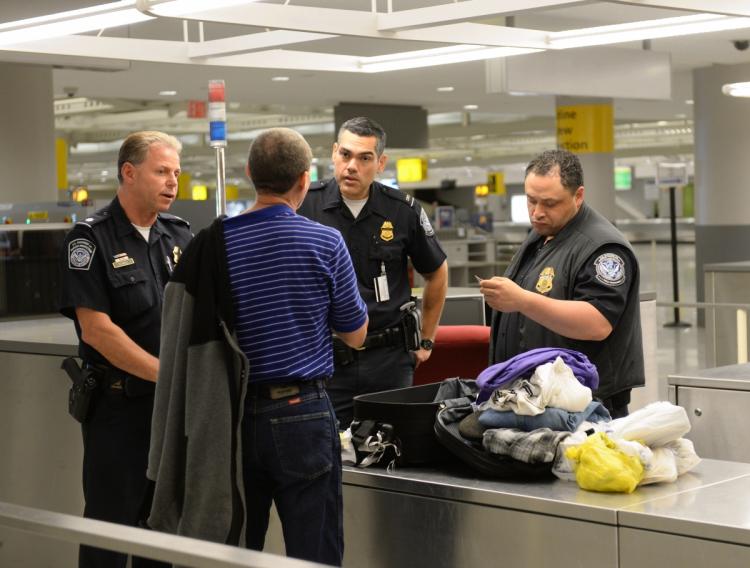 Between 2016 and 2017, police officers in Phelps County, Missouri seized over $2.5 million during traffic stops along a 20-mile stretch of I-44. For none of these seizures did law enforcement file any criminal charges.
Between 2016 and 2017, police officers in Phelps County, Missouri seized over $2.5 million during traffic stops along a 20-mile stretch of I-44. For none of these seizures did law enforcement file any criminal charges.
The property was taken using a legal procedure known as civil asset forfeiture. This is where law enforcement is able to seize an individual’s property if it is suspected of being involved in a crime. In criminal procedures, proof “beyond a reasonable doubt” is required to gain a conviction. As civil asset forfeiture is a civil and not a criminal process, the standard of proof required to permanently take property is usually lower. In Missouri, all that is required is “a preponderance of the evidence.”
According to filings with the Missouri State Auditor, no charges were filed against the drivers in the 24 seizures in this two-year period. This happened despite state law saying that law enforcement may not take property without a criminal conviction.
Missouri law also says that the proceeds of civil asset forfeitures are to be “distributed annually to the schools.” The idea behind this is to ensure that Missouri law enforcement cannot be accused of “policing for profit.” In many states, police departments may keep a majority or all of the profits from forfeitures. This has led critics to argue that law enforcement in those areas is incentivized to carry out forfeitures.
Although state law states the proceeds from civil asset forfeiture must go to public schools, less than 2 percent of the money from forfeitures statewide has actually made its way there. The vast majority of the $19 million from civil forfeitures has been spent by law enforcement agencies on themselves. Over the last two years in Phelps County alone, forfeitures have provided $2.3 million for a new jail in the county seat, Rolla, more than $100,000 for technology and equipment, and about $80,000 for salaries.
Agencies in Missouri are circumventing state law by partnering with the federal government, using a program known as “equitable sharing.” This is where the feds “adopt” a forfeiture conducted locally. The federal government retains 20 percent of the proceeds of these forfeitures while the local law enforcement agency receives the remaining 80 percent. According to the program’s terms, this money must be spent by the law enforcement agencies on themselves.
Phelps County Sheriff Richard Lisenbe feels that the proceeds from asset forfeiture are essential to fund his department’s operations. “Most departments don’t have much income,” he said. “Before we got in this asset-forfeiture thing, we were driving cars that had 300-400,000 miles on them.”
Attempts to reform state law to reduce the number of cases being sent to the feds have stalled in committee. State Rep. Shamed Dogan (R-Ballwin) is working on a new measure which would only allow forfeitures valued at above $100,000 to be eligible for the equitable sharing program. Law enforcement agencies favor a lower bar of $50,000. While only 19 percent of forfeitures are valued above $50,000, they amount to 80 percent of the money from forfeitures.
While this may be a palatable compromise for law enforcement, the Missouri School Boards’ Association argues that, according to the state constitution, all the money should come to them. With many schools buildings over a hundred years old, the association argues the money would be better spent on education rather than law enforcement.
Civil Asset Forfeiture Attorney
If your lawful property has been seized, then you should hire a lawyer. Contact us to set up a free initial consultation and work with one of Florida’s most experienced civil forfeiture defense attorneys.
Source
2019-20-27 Seizing Suspects’ Assets Like ‘Pennies From Heaven



